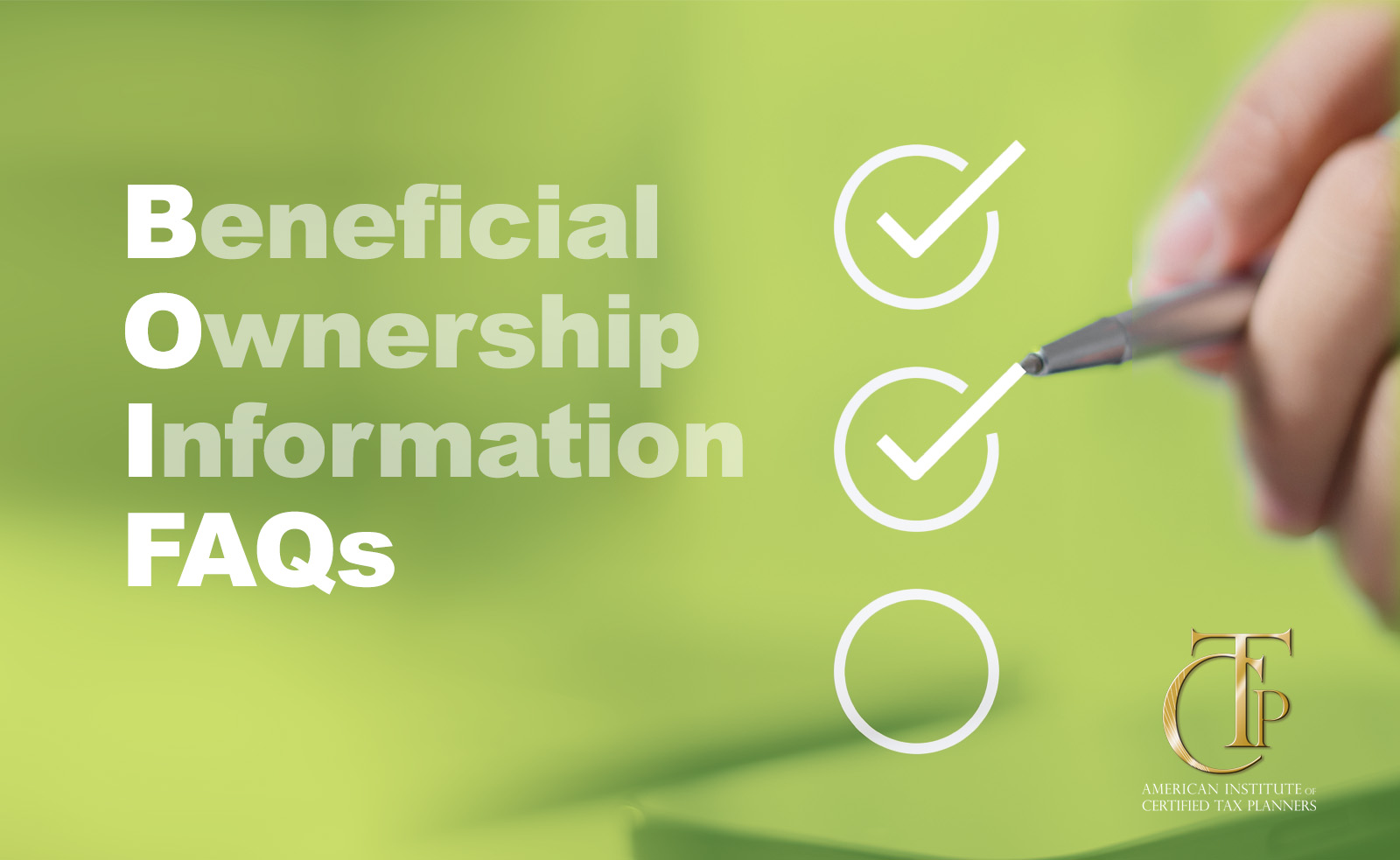As 2024 kicks off, so do new legal requirements for small businesses. The Corporate Transparency Act took effect on January 1st, which means that many businesses will need to submit a Beneficial Ownership Information Report to the Financial Crimes Enforcement Network (FinCEN). These new regulations are intended to help the U.S. government identify small businesses that are actually a front for illicit business operations, such as money laundering. By collecting data on who is actually in control of businesses, the government hopes to crack down on bad actors.
Though the taxpayers themselves are responsible for submitting this information, tax professionals can serve as advisers and can opt into acting as the “company applicant” (more on this below) if they would like to add additional services to their business. Our last article covers the basic things-to-know about the new BOI reporting requirements. Below are other frequently asked questions to help you orient your clients to the ins and outs of Beneficial Ownership Information Reports.
Accountants and Lawyers. Are accountants or lawyers considered beneficial owners of a small business? General accounting and legal services are considered ordinary advisory roles, so these positions would not qualify as having substantial control over the entity. However, based on FinCEN’s definitions, senior officers, such as a general counsel or CFO, would be considered a beneficial owner. It all comes down to the actual services provided for the business.
Consider whether your lawyer’s or accountant’s responsibilities could equate to substantial control. Do they have signing authority over the bank account, access to the bank accounts, or access to the mail? Do they have hiring and firing power? Do they participate in establishing the compensation of any of the employees? If so, that person might be considered a beneficial owner of the company, even if they don’t actually have ownership interest.
Company Applicants. As mentioned above, you may opt to act as the company applicant on behalf of your clients. This refers to the individual who directly files the document that creates or registers the company. If more than one person is involved, the company applicant is the person who is primarily responsible for directing or controlling the filing. Both domestic and foreign companies registered in the U.S. on or after January 1, 2024 are required to provide information on their company applicants.
Companies are also required to keep information about company applicants and beneficial owners on file unless a change in ownership occurs within the company. This is true even if the company applicant no longer works for or has a relationship with the reporting company. If there is a change in ownership or company information, the company should send in an updated report to FinCEN.
Consolidating Companies or Employees. Business owners may want to know if they can find a way to qualify for the large operating company exemption, to avoid filing a BOI report. Say, for instance, an entrepreneur owns a group of related companies. Would they be allowed to consolidate the number of employees across those companies to reach that 20-employee threshold? Unfortunately, the answer is no, even if the companies meet the $5 million revenue threshold collectively. However, the rule is different for aggregating revenue—related companies can consolidate their profits to reach the $5 million threshold.
Exempt Entities. What if a company qualifies as exempt? What actions will they need to take in the new year? If the organization has always been exempt, they will not need to file a BOI report. However, if a change occurs that causes a company to no longer be exempt, then they will need to file a BOI report. This could occur if their employee count falls under 20 or their annual revenue drops below $5 million. If the company’s exemption status changes, they will be subject to that 30-day deadline to file your BOI. The same is true if the company instead becomes exempt—they will need to file an updated reporting indicating the change in status.
Tax Identification Numbers. Companies or beneficial owners in need of a TIN or EIN (employer identification number) may find themselves hustling to apply to get this information by their BOI reporting deadline. The IRS estimates that this process takes six to eight weeks. Fortunately for new companies formed in 2024, they get that extended 90-day timeline to file. Companies formed in 2025 and onward will likely have only 30 days to get everything in order to file their BOI report.
Fortunately, many companies can register online. The exception is if one of your beneficial owners is a foreigner without an individual TIN—then you are required to file a paper request.
Summary
FinCEN has provided a substantial FAQs list to ensure small businesses are ready for their first BOI report. Organizations should review this list in detail to determine if they count as a reporting company and, if so, what information they will need to provide. Tax professionals can provide an additional level of support for their small business clients by advising on the BOI reporting requirement and helping them stay ahead of the deadline. To orient yourself to these new regulations and stay up-to-date on compliance requirements for 2024, become a Certified Tax Planner today.







